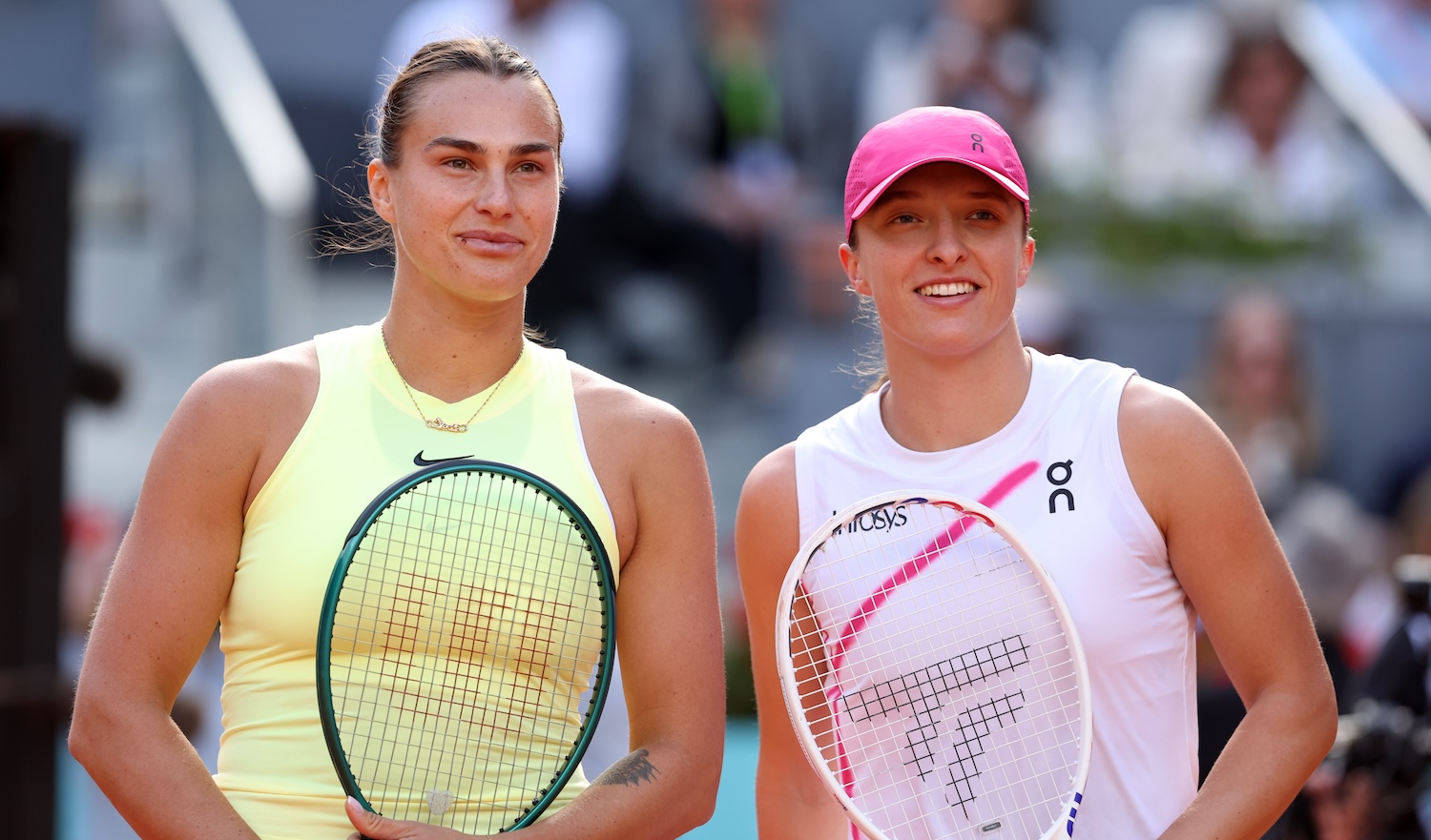The first time Aryna Sabalenka faced championship point this past Saturday in Madrid, deep into a third-set tiebreak, she stared across the net at Iga Swiatek and crushed an ace. For over three hours, the top two women's players in the world threw their best at each other until Swiatek finally outlasted Sabalenka, avenged her loss at last year's Madrid final, and won, 7-5, 4-6, 7-6(7). The match was this season's first edition of what has become the best rivalry in the WTA.
At three hours, 11 minutes, the final was the longest of their 10 career meetings, but neither was willing to wait for the other to fizzle out. Both Swiatek and Sabalenka prefer to be the aggressor, though each does so with a different approach, so this dynamic can only be resolved when one of them destroys the other with even bigger shots.
Sabalenka is always worth watching for the boldness with which she plays, eschewing safer choices for a diet of concussive winners. Few can match her power and fewer still can consistently displace her on the baseline. Swiatek, however, has both the defensive chops to withstand Sabalenka's salvos, the depth and power to force her opponent to sprint around, and the aggression to seize the initiative during moments of transition. Swiatek denies her opponents breathing room and seizes on any moment of weakness to apply critical pressure.
The Dutch writer Tim Krabbé once wrote that bike racing "is licking your opponent's plate clean before starting on your own," and when I see Swiatek smothering her opponents in every single part of a match, it feels applicable. Through the 10 other sets she played on her run to the final, she dropped an average of 1.4 games, with two bagels and five 6-1 sets. Aside from an anomalous opening set against Beatriz Haddad Maia in the quarters, where Swiatek blew a 4-1 lead after having 20 bad minutes out of nowhere, nobody came close to even troubling her.
But Swiatek couldn't bully Sabalenka, and Sabalenka couldn't overwhelm Swiatek with pure power. What made the match so special is that they both tried all the same. Sabalenka's backhand looked menacing, and she kept trying to find the corners and slam shots past Swiatek. Swiatek dutifully moved her opponent around, and held her ground when Sabalenka started blasting. A similar dynamic played out last year at Madrid, when Sabalenka won. One year later, the margin was significantly thinner, and Swiatek saved three match points before finally outlasting Sabalenka. "I think it was the most intense and crazy final I played," Swiatek said.
Madrid was the first time Sabalenka had looked like herself since her Australian Open title, although that's wholly understandable given what has happened in her life since. In March, her ex-boyfriend Konstantin Koltsov died of an apparent suicide; she chose to play in the Miami Open days later and lost in the round of 32. The standard grind of tennis is arduous, and dealing with a death like that would surely only compound matters, so it was encouraging to see Sabalenka look like herself against Swiatek.
In Madrid, Sabalenka dropped a set in five of her six matches, including the opener to Danielle Collins in the round of 16. Collins has been tearing through the field this season, but Sabalenka snapped into her old form. Elena Rybakina backed Sabalenka into a corner in the semifinal, and she hit her way through it, winning a third-set tiebreak against an opponent who tends to not lose high-stakes tiebreaks. Even in the final against Swiatek, victory was right there—a would-be forehand winner on Sabalenka's first championship point missed by inches.
The styles of Swiatek and Sabalenka don't so much complement each other as much as they amplify it. The rivalry functions as a multiplier for the conditions of the match, adding a little more force to each shot and a little more intensity to each rally. Hopefully they'll cross paths again at the upcoming French Open, but their next meeting can't come soon enough.






